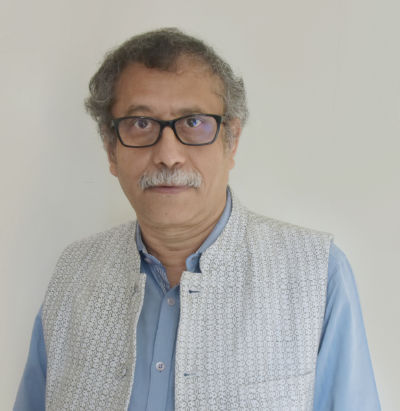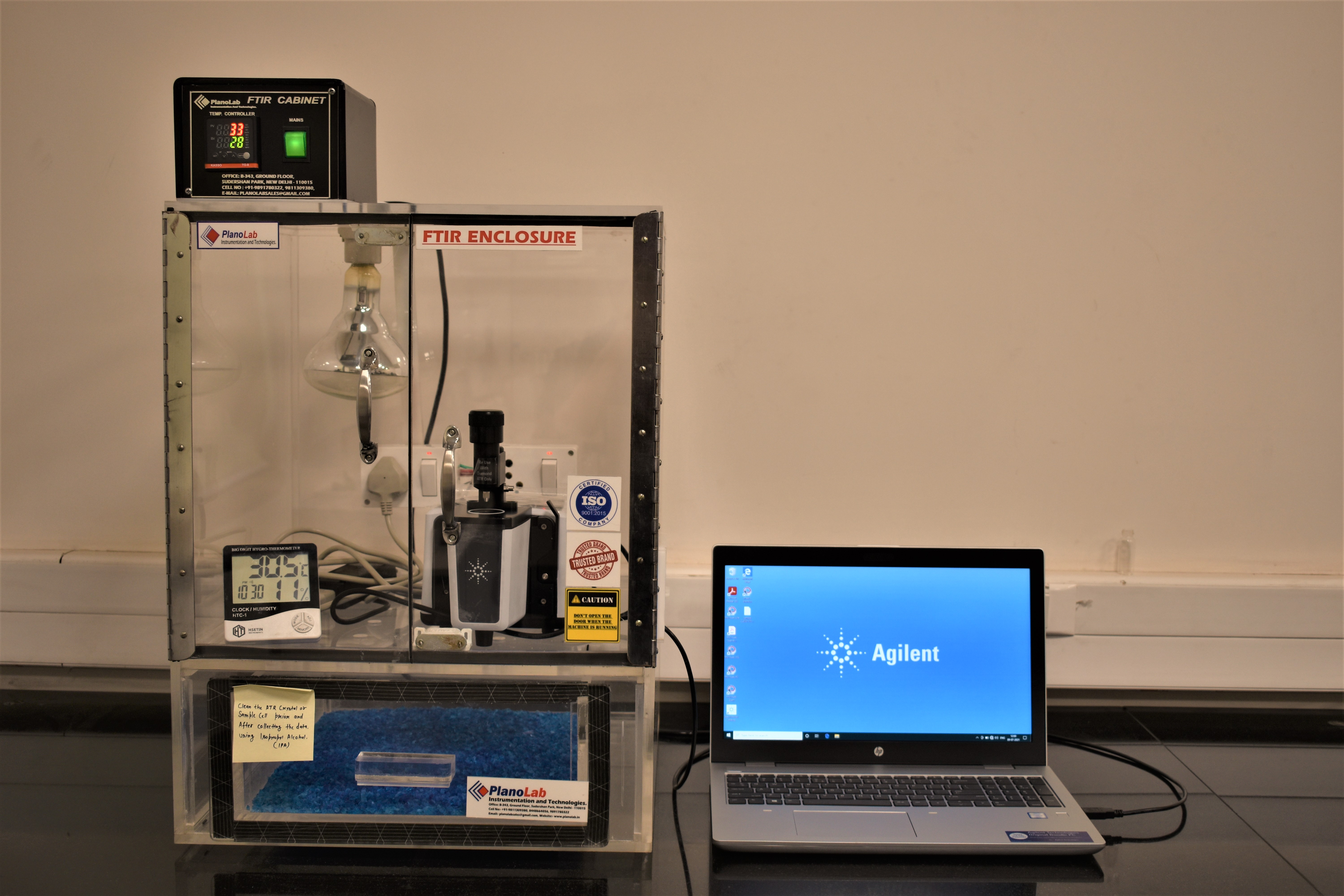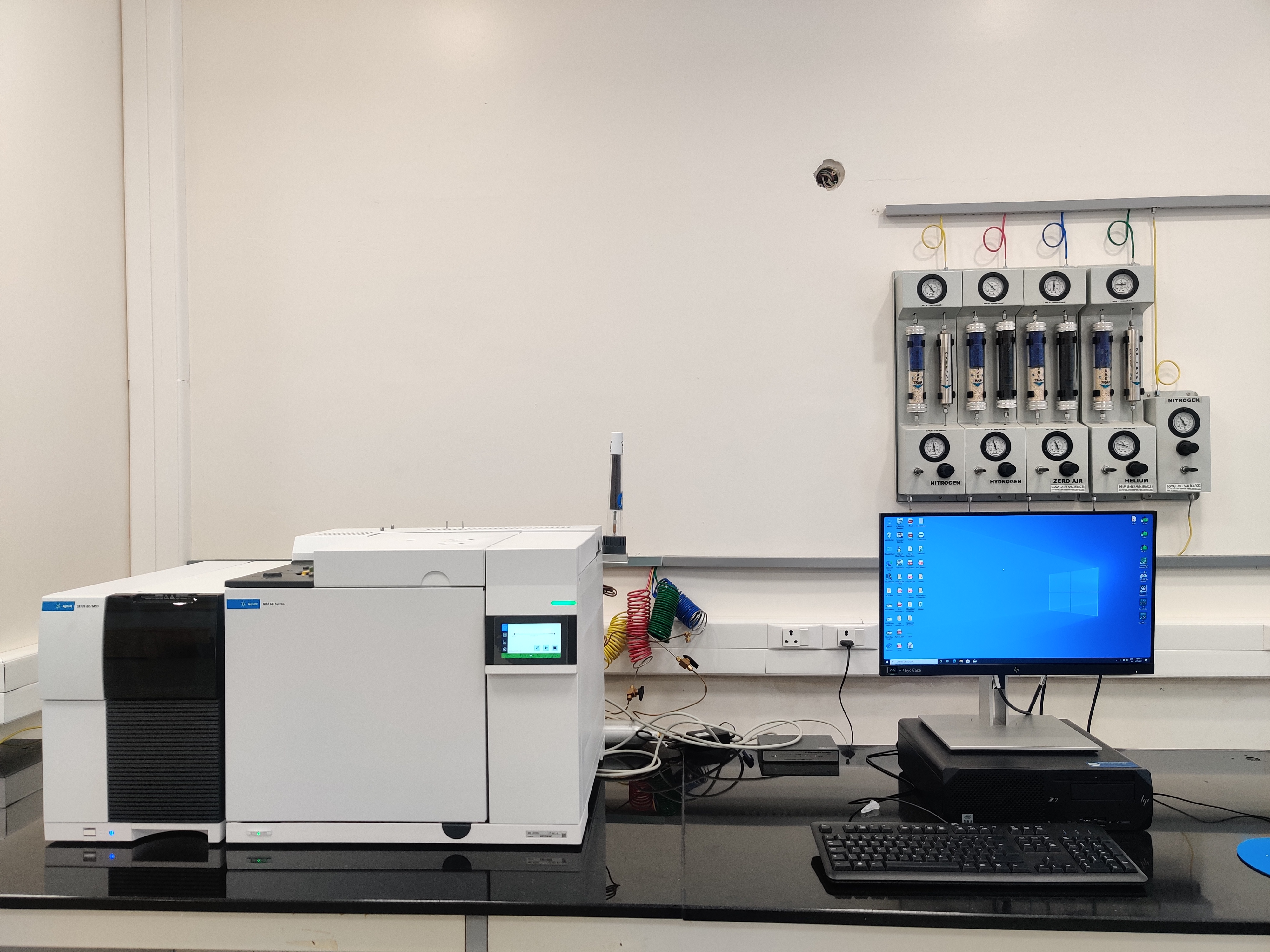Chemistry at Ashoka: Spotlight and Faculties
The Chemistry Department is young and yet in short time, it has taken up teaching of topical areas of chemical sciences within the Ashoka ecosystem and research challenges related to societal impact as well as advances in fundamental research. Prof. Sourav Pal tells us more

Sourav Pal
8 June, 2023 | 6m readThe major focus of the Chemistry department at Ashoka University is on sustainable chemistry with climate change and environment in mind, renewable energy, green processes, setting up state-of-the-art facilities and advancing frontiers in basic research. Computational, analytical and synthetic procedures will be the key tools in the construct.
As of now, we have five faculties and two more faculties are going to join us this summer. The chemistry department faculties have national and international experience and very well matched with the reputed faculty members of Ashoka University. Younger faculties are doing excellent research with great potential. Among the senior faculties, Vidya Avasare has received the prestigious INSA Best Teacher Award of 2021. They have specialization in Bioinorganic Chemistry, Theoretical/computational Chemistry, and Material Chemistry and are actively involved in research in their respective field. Details of faculty profiles are on the website of the Chemistry Department. Their articles on their research are profiled in this issue.
The relevance of Chemistry
Chemistry is a subject of understanding at the molecular level, where a reaction must be described by breaking and forming of new bonds. Chemistry has a huge role in our day-to-day life. It is almost impossible to think of our modern life without chemistry or chemical knowledge. Even our emotions are controlled by hormones, which are nothing, but chemical molecules.
The human body is a huge mystery with lots of chemical reactions including the blood flow in our system controlled by Hemoglobin, an iron complex. Chemistry plays a very important role in maintaining sustainable earth as elaborated below.
Chemistry: An exciting new branch at Ashoka
At Ashoka, our objective is to teach chemistry in an integrative and holistic manner connecting with other branches of science, physics, biology, and mathematics. We believe Chemistry will play a significant role in biology, materials research, and understanding of catalysis, nano-scale materials, the harnessing of renewable energy, and healthcare as well as in providing clean water, separation, and a clean environment.
It is a quintessential science with an impact on societal problems and sustaining the earth, such as Climate Change, Healthcare, Renewable Energy, and Clean environment. It is a central science overlapping with all other sciences. Chemistry provides valuable information to biology, draws principles from physics and computational science and is unique in devising synthesis strategies and harnessing analytical methods.
Further, chemistry provides the best connection with industries among all science subjects and thus provides an opportunity that Ashokans, pursuing chemistry as a major, will get. Chemistry also provides opportunities for entrepreneurship in the form of start-ups in the area of healthcare, pharma, agriculture, renewable energy, like solar, hydrogen etc.

Courses on offer at Ashoka
For UG students, one of the new courses we will initiate is on Sustainability. As discussed, chemical sciences play a very important role in bringing sustainable earth in terms of renewable energy, a clean atmosphere, waste recycling, healthcare and climate. This course will play an integrated role of science with an impact from chemistry on various issues sustaining the earth.
We are presently offering ‘Topics in Chemistry’ which will cover basic knowledge of Chemistry with a focus on hot topics of relevance. Any student interested in science would benefit from taking this course. ‘Energetics of change’, essentially is a course about thermodynamics, which in some sense governs the universe. You can learn the basic principles and the factors required to complete a reaction. General thermodynamics will allow you to understand many other topics in an integrative manner. ‘Introductory Laboratory Course’ will provide a chance to play with chemicals in the laboratory.
We have also started Computational Drug Discovery which will allow students to learn how two topical subjects of computational Chemistry and Drug Discovery can be combined to provide potentially exciting outcomes. For any of the courses, interest in science is the most important criterion. We are also offering ‘Chemical Biology’ as an elective, ‘rate, order & mechanism’, and ‘Inorganic Chemistry’.
For Ph.D. course, we are offering research methodology which will teach the students best practices of research, effective communication, both oral and written, ethical research practices and dissemination. In addition, many courses on different aspects of chemical sciences will be offered which will prepare the students for frontier research.

Career Opportunities
We believe that the chemistry major at Ashoka will provide very successful career opportunities from academics to researchers in labs, mission-driven research, many alternate science careers, industries as well as entrepreneurship in the form of start-ups.
Prof Sourav Pal is a distinguished theoretical chemist and has contributed to methodological and conceptual developments on many-body electronic structure theory, to the area of density-based chemical reactivity as well as to catalytic and hydrogen storage materials using computational material science. In particular, he is well known for his contributions to the development of rigorous ab initio coupled-cluster theory for molecular electronic structure. He has published over 300 papers and guided about 45 Ph.D. theses. Prof. Sourav Pal is currently heading the Department of Chemistry. He has wide experience as an immediate former- director of IISER Kolkata before joining as well as ex-director of the famous National Chemical Laboratory (NCL) Pune. In between he worked at IIT Bombay as Professor. Prof Pal is a Bhatnagar awardee, a Fellow of all National Academies of Science, an Executive Board member of Commonwealth Chemistry, and a Board member of the Asia-Pacific Association of Theoretical and Computational Chemistry. He is presently Chairman of the Chemical Division Council of the Bureau of Indian Standards and was President of the Chemical Research Society of India, from 2014-2017. He is also a Fellow of the Royal Society of Chemistry, UK. These are a few recognitions, among several others.










